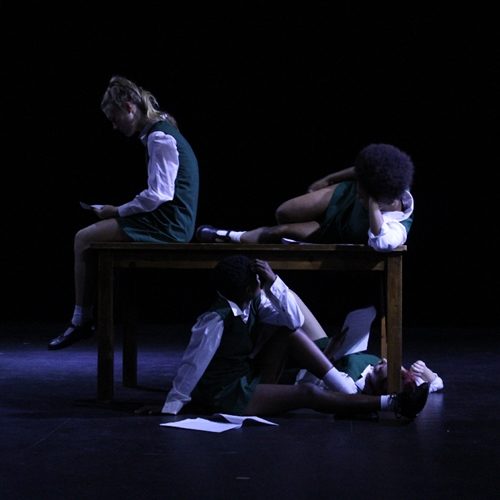
A Howl in Makhanda
Wayward: related to the family of words: errant, fugitive, recalcitrant, anarchic, willful, reckless, troublesome, riotous, tumultuous, rebellious and wild. To inhabit the world in ways inimical to those deemed proper and respectable, to be deeply aware of the gulf between where you stayed and how you might live.
Waywardness: the avid longing for a world not ruled by a master, man or the police….The attempt to elude capture by never settling.
Throughout history, the black femme body has been marked as undesirable, inherently delinquent or criminal. Young black girls are hyper-sexualised and criminalised compared to their counterparts of different races —they are too loud, too angry…wayward.
In her text Wayward Lives, Beautiful Experiments: Intimate Histories of Riotous Black Girls, Troublesome Women and Queer Radicals Saidiya Hartman presents us with a different reading for the concept of waywardness. She reimagines waywardness as a poetic method of subversion or refusal and subjectivity.
I’m thinking through this notion of waywardness in relation to Qondiswa James’ play, A Howl in Makhanda. Xoli, Bawdy, Sam and Karla are a group of grade 11 girls who attend an independent school in Makhanda. Throughout the play we see them grappling with various issues – race, class, gender and sexuality while attempting to navigate the day to day struggles of being a young person. They are caught breaking the school rules which necessitates a disciplinary hearing. The outcome of the hearing mirrors the social injustices that young black girls are often presented with – the presumption of guilt.
Drawing from the story of James’s own experiences in high school, the play is a riotous poem of rebellion and an ode to finding oneself in a world of chaos.
The boarding school is the narrative spine along which the story built, it is the prison/masters’ house that the four girls are desperately yearning to escape – the structure, the rules, the routine. In the play, time is splintered and fragmented through the cycle of sleep; the girls wake up, eat their breakfasts, attend class, sneak off to smoke cigarettes, go back to boarding quarters, sleep and repeat. Through a few repetitions of this cycle, we learn about their experiences of navigating teenagehood. Dreams or rather the retelling of dreams is used to dissect deeper into the psyche of the young women.
Taking a challenging, witty and fundamentally disturbing view into the effects of institutional racism and misogyny within the context of the school, the play offers an analysis and critique of the experiences of girlhood in private schools in South Africa. It provides a language to articulate some of these experiences. The young women’s agency and autonomy are seen and felt through their active voices all the while embracing their waywardness – they are errant, fugitive, recalcitrant, anarchic, willful, reckless, troublesome, riotous, tumultuous, rebellious and most importantly courageous. They speak for themselves (boldly and loudly) and they raise critical questions, among them; how does one situate oneself in the context of a racist, exploitative and heteropatriarchal society?
You can watch A Howl in Makhanda here
Source: The Critter


